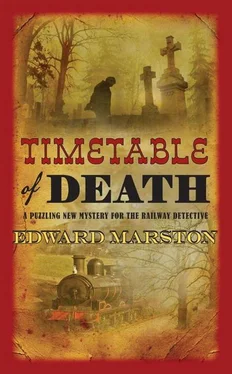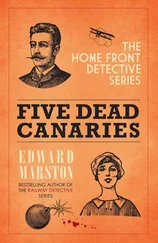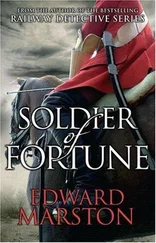Edward Marston - Timetable of Death
Здесь есть возможность читать онлайн «Edward Marston - Timetable of Death» весь текст электронной книги совершенно бесплатно (целиком полную версию без сокращений). В некоторых случаях можно слушать аудио, скачать через торрент в формате fb2 и присутствует краткое содержание. Год выпуска: 2015, ISBN: 2015, Издательство: ALLISON & BUSBY, Жанр: Исторический детектив, на английском языке. Описание произведения, (предисловие) а так же отзывы посетителей доступны на портале библиотеки ЛибКат.
- Название:Timetable of Death
- Автор:
- Издательство:ALLISON & BUSBY
- Жанр:
- Год:2015
- ISBN:9780749018122
- Рейтинг книги:4 / 5. Голосов: 1
-
Избранное:Добавить в избранное
- Отзывы:
-
Ваша оценка:
- 80
- 1
- 2
- 3
- 4
- 5
Timetable of Death: краткое содержание, описание и аннотация
Предлагаем к чтению аннотацию, описание, краткое содержание или предисловие (зависит от того, что написал сам автор книги «Timetable of Death»). Если вы не нашли необходимую информацию о книге — напишите в комментариях, мы постараемся отыскать её.
Timetable of Death — читать онлайн бесплатно полную книгу (весь текст) целиком
Ниже представлен текст книги, разбитый по страницам. Система сохранения места последней прочитанной страницы, позволяет с удобством читать онлайн бесплатно книгу «Timetable of Death», без необходимости каждый раз заново искать на чём Вы остановились. Поставьте закладку, и сможете в любой момент перейти на страницу, на которой закончили чтение.
Интервал:
Закладка:
The cottage in King Street was little more than a hovel. Clearly, Hockaday’s friends were in straitened circumstances. A rusty bell hung outside the front door. When he rang it, Leeming had to wait some time before the door was opened by a wizened old man bent almost double. Having established that he was talking to Seth Verney, the sergeant explained why he was there. The mention of Hockaday’s name put some animation into the old man.
‘Yes, sir, Jed was here that night.’
‘What time did he leave?’
‘He caught the last train back home.’
‘Had he been drinking?’
Verney cackled. ‘Oh, yes — he likes his beer.’
‘But he should have been on patrol in Spondon and constables are not allowed to drink on duty.’
‘It were his day off, sir.’
‘How long was he here?’
‘Jed’s never here for long but we loved seeing him.’
‘He told us he was in the village for some hours.’
‘That’s as maybe. We only saw him at the very end of the evening.’
‘So where did he go before he came here?’
‘I don’t know, sir, but he’d been drinking.’
‘How often do you see him?’
The old man cocked his head to one side. ‘What’s this got to do with that murder you talked about?’
‘I’m not sure,’ admitted Leeming.
‘Jed is a constable. He’s one of you , Sergeant.’
‘I appreciate that, Mr Verney.’
‘He’s not in any trouble, is he?’
‘No, no, I’m just … checking up on something he told us.’
‘Why’re you doing that? Don’t you trust his word?’
‘It never does any harm to confirm certain facts.’
But the other man was increasingly defensive. Leeming found it hard to get the information he was after. What surprised him was Verney’s age and obvious penury. He seemed an unlikely friend for Hockaday, especially as the old man claimed that he’d signed the pledge and was thus no drinking companion of the cobbler. Leeming couldn’t imagine what they’d have to talk about. He was wondering with whom Hockaday had spent time before he came to see Verney and his wife.
‘Let me go back to a question I asked earlier,’ said Leeming.
‘Which one?’
‘How often do you see Mr Hockaday?’
‘He only comes every now and then.’
‘Why is that, sir?’
‘Shouldn’t you be back in Spondon, trying to catch that killer?’ asked the old man with a burst of anger. ‘It wasn’t Jed, I tell you. I’d swear to it.’
‘Why do you say that, sir?’
‘It’s because he only comes here when he has money to give us.’
‘Is he a relative of yours, Mr Verney?’
The old man looked over his shoulder to make sure that nobody inside the cottage could hear him, then he leant forward to confide in Leeming’s ear.
‘I’m Jed’s father.’
Harriet Quayle’s health had swiftly declined. Though there’d been no apparent ill effects from her sojourn in the grounds, she later became visibly unwell. Even though she was in a warm bed, she began to shiver. Her face whitened and her breathing was irregular. She complained of pain in her limbs. But the biggest change was in her attitude. Hitherto, she’d made an effort to cope with the devastating news of her husband’s murder and had even been able to go for a ride in the landau. It was almost as if the ugly truth had finally sunk in. She had lost the man who’d been beside her for so many years and who’d fathered her four children. Her grief was exacerbated by the fact that one of those children was no longer there to comfort her.
‘Mother is getting worse,’ said Agnes.
‘Give her something to help her sleep,’ advised her elder brother. ‘The doctor left those tablets.’
‘She’s rambling, Stanley. Her mind is crumbling.’
‘Stay with her. If Mother doesn’t improve, send for the doctor. I’ll look in on her when I get back.’
‘Where are you going?’
‘I’ve business in Nottingham.’
‘I feel so much better when you’re here — everybody does.’
‘Goodbye, Agnes.’
After brushing her cheek with a token kiss, he ignored her plea and left the house. The landau was waiting for him on the drive. Standing beside it and holding the door open was John Cleary. He acknowledged Stanley Quayle with a nod. After clambering into his seat, the passenger turned on the coachman.
‘Do you see what you did, Cleary?’
‘I don’t know what you mean, sir,’ said the other, folding the step into position and closing the door.
‘Thanks to you, my mother is very ill.’
‘I’m sorry to hear that, sir.’
‘You should have considered her health before you agreed to take her for a drive. Her constitution was too weak for an outing.’
‘Mrs Quayle seemed well enough to me, sir.’
‘It wasn’t your place to make such a judgement.’
‘No, sir,’ said Cleary. ‘I know that.’
‘My mother left the house against the express wishes of my sister. You must have been aware of that when they came out together.’
‘I was too busy helping Mrs Quayle into her seat, sir.’
‘You’ve displeased me, Cleary,’ warned the other.
‘I didn’t mean to,’ said the coachman, earnestly, ‘and I didn’t think that it would do Mrs Quayle any harm. I was as worried as anybody when she disappeared. Well, you saw me, sir. I helped in the search for your mother and I was very relieved when she was found.’
Stanley Quayle looked at him with undisguised contempt. Unable to decide if the coachman was being honest or merely obsequious, he repeated his warning that Cleary’s job hung in the balance. If he was given the slightest cause for annoyance, Quayle would have him dismissed.
‘Do you understand, Cleary?’
‘Yes, sir.’
‘When I make a threat, I always mean it.’
The coachman’s manner was courteous. ‘Yes, Mr Quayle.’
The passenger sat back in his seat and waved a lordly hand.
‘Take me to the railway station.’
Whether on the cricket field or off it, Gerard Burns always committed himself to the task in hand. In the time that he’d worked in the gardens at Melbourne Hall, he’d suggested a number of initiatives. Though some had inevitably been turned down, those that had been implemented proved to be universally successful. He was always looking for ways to improve vistas and add floral refinements. His latest project concerned the fountains and he was studying them yet again when he realised that he had a visitor. Robert Colbeck seemed to have materialised out of thin air.
‘I never expected to see you again, Inspector,’ said Burns.
‘I’d hoped it might not be necessary, sir.’
‘It’s not really convenient for me to talk now.’
‘Then I’ll wait for you in the police station, Mr Burns, and we can have the interview there. It might not be quite so private, I’m afraid.’
Colbeck’s threat had the desired effect. If Burns was seen giving a statement in the police station, it would soon become common knowledge. Several people were employed at the Hall. One of them was certain to catch wind of the development and taunting was sure to follow. If it was known that Burns was a suspect in a murder inquiry, his job might be at risk. Changing his mind, he led Colbeck to a quieter part of the garden and they sat on a bench in the sunshine.
‘What would you like to know, Inspector?’ asked the gardener.
‘I’m sure that you recall that cricket match in Ilkeston.’
‘Very clearly.’
‘I went there,’ said Colbeck, noting the look of surprise from the other man. ‘I have to say that I’ve seen better pitches.’
Burns recovered quickly. ‘If you took the trouble to check up on me, you’ll know that what I told you was the truth. I did play cricket there on that day.’
Читать дальшеИнтервал:
Закладка:
Похожие книги на «Timetable of Death»
Представляем Вашему вниманию похожие книги на «Timetable of Death» списком для выбора. Мы отобрали схожую по названию и смыслу литературу в надежде предоставить читателям больше вариантов отыскать новые, интересные, ещё непрочитанные произведения.
Обсуждение, отзывы о книге «Timetable of Death» и просто собственные мнения читателей. Оставьте ваши комментарии, напишите, что Вы думаете о произведении, его смысле или главных героях. Укажите что конкретно понравилось, а что нет, и почему Вы так считаете.












